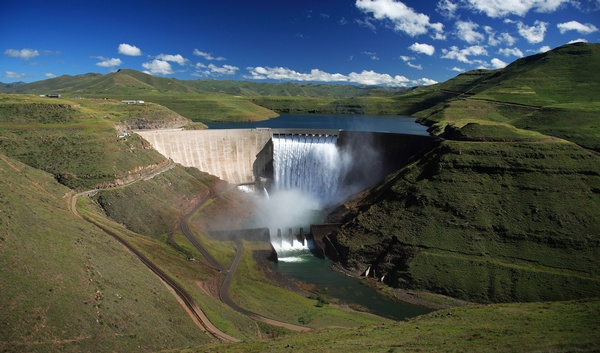

Knight Piésold Southern Africa Appointed for Polihali Transfer Tunnel Design and Construction Supervision
May 9, 2018, Johannesburg, South Africa – The Metsi a Senqu-Khubelu Consultants (MSKC) joint venture, consisting of Knight Piésold, Aurecon, Hatch, SMEC, and FM Associates, successfully concluded contract negotiations, with the Lesotho Highlands Development Authority (LDHA) in December 2017, for the multi-billion Maloti/Rand project called “Design and Construction Supervision of the Polihali Transfer Tunnel.”
This project forms part of Phase II of the Lesotho Highlands Water Project (LHWP), which is a bi-national water resources project initiative between the governments of Lesotho and South Africa.
A treaty signed between the two governments sets out the development structures that have been designed to include four phases, planned over a 30-year implementation period. The LHWP is expected to ultimately transfer approximately 70 m3/s of water to Gauteng in South Africa.
The project encompasses large-scale infrastructure to harness water resources from the highlands of Lesotho through the construction of a series of dams and tunnels for the mutual benefit of Lesotho and South Africa.
Water from the LHWP is transferred via the Katse Reservoir, through the Transfer Tunnel and Delivery Tunnel, to the Ash River Outfall between Clarens and Bethlehem in South Africa. Water flows from the Ash River into the Liebenbergsvlei, which joins the Wilge River near Frankfort before finally reaching the Vaal Dam in Gauteng. The associated bulk civil infrastructure was completed in Phase I of the LHWP, which was split into Phases 1A and 1B.
Phase II of the LHWP broadly comprises the design and construction of the following major components:
- Polihali Dam, a concrete faced rockfill dam, located downstream of the confluence of the Senqu (Orange) and Khubelu Rivers in Lesotho
- An approximately 38.5-km-long Polihali Transfer Tunnel to convey water from Polihali Reservoir to Katse Dam
- All associated advance infrastructure, including access roads, bridges, construction camps, diversion tunnels at the Polihali dam site, healthcare facilities and programmes, and associated environmental and social studies and programmes.
The Polihali Transfer Tunnel will comprise an intake works at the new Polihali Reservoir, a 5-m-diameter and 38.5-km-long main water transfer tunnel, ventilation and dewatering shafts, and an outlet works at Katse that terminates in a Norwegian-type lake tap that is excavated by blasting inside the Katse Dam impoundment on the eastern flank of the existing reservoir.
The Transfer Tunnel appointment is MSKC’s second appointment on Phase II, with the MSKC also having been appointed for the “Design and Construction Supervision of the Polihali Diversion Tunnels” in September 2016. This was for the design and construction supervision of two diversion tunnels to facilitate river diversion during construction of the Polihali Dam, comprising a 7-m- and 9-m-diameter tunnel with length of 910 m and 960 m, respectively.